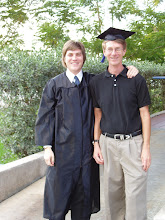
Summer 2009 Courses
STAT 541 Applied Statistics for Engineers and Scientists Semester course; 3 lecture hours. 3 credits. Prerequisites: MATH 200-201 or equivalent, and a working knowledge of computers. An introduction to applied statistics intended primarily for students in mathematical sciences, engineering and the Commonwealth Graduate Engineering Program. The fundamental ideas of the collection and display of information, descriptive statistics and exploratory data analysis, elementary probability theory, frequency distributions and sampling are covered. Other topics include tests of hypotheses and confidence intervals for one and two sample problems; ANOVA; principles of one-factor experimental designs including randomized complete black designs, fixed and random effects and multiple comparisons; correlation and linear regression analysis; control charts; contingency tables and goodness-of-fit. Students may receive degree credit for only one of STAT 541, STAT 543 or BIOS 553.
MGMT 319 Organizational Behavior Semester course; 3 lecture hours. 3 credits. Prerequisite: Junior standing. Introduction to the determinants and consequences of human behavior and task performance in an organizational setting. Topics include motivation, job design, group development, organizational design, communication, leadership and change.
Fall 2009 Courses
EGRM 300 Mechanical Systems Design Semester course; 3 lecture hours. 3 credits. Prerequisites: EGRM 201, EGRM 202 and MATH 301, or permission of the instructor. Basic principles of applied mechanics and materials employed for the design of machine elements and mechanical systems; state of stress, deformation and failure criterion is applied to bearings, brakes, clutches, belt drives, gears, chains, springs, gear trains, power screws and transmissions.
EGRM 311 Solid Mechanics Lab Semester course; 4.5 laboratory hours. 1.5 credits. Prerequisites: EGRM 201, 202 and junior standing or permission of the instructor. Corequisites: EGRM 300 and 309. Experiments will be conducted on fundamental principles of solid mechanics, materials and dynamics. Topics covered include testing of materials for tensile, compression, bending and torsional loads, vibrations and material microstructure.
EGRM 321 Numerical Methods Semester course; 3 lecture hours. 3 credits. Prerequisites: MATH 301 and EGRM 215, or permission of instructor. A study of numerical algorithms used in error analysis, computing roots of equations, solving linear algebraic equations, curve fitting, numerical differentiation and integration, numerical methods for ordinary differential equations and a brief introduction to numerical methods for partial differential equations. The course content is tailored for mechanical engineering applications.
EGRM 420 CAE Design Semester course; 3 lecture hours. 3 credits. Prerequisites: EGRM 201, 215 and junior standing in the School of Engineering or permission of the instructor. Review of geometric modeling, engineering visualization tools applicable to engineering design. Develop visual thinking and communication skills with assistance of computer modeling tools. Emphasis placed on creative design, application of physical laws, and hands-on virtual or physical projects. Topics include review of kinematics/dynamics of commonly used planar mechanisms and programming techniques for motion simulation. Interdisciplinary projects will be assigned to assess students' design knowledge.
ENGR 301 Fluid Mechanics Semester course; 3 lecture hours. 3 credits. Prerequisites: PHYS 207, MATH 301 and EGRM 204 or permission of instructor. Basic and applied fluid mechanics; fluid properties; application of Bernoulli and Navier-Stokes equations; macroscopic mass, momentum and energy balances; dimensional analysis; laminar and turbulent flow; boundary layer theory; friction factors in pipes and packed beds; drag coefficients; compressible flow; flow measurements; numerical simulation; applications to the operation and design of turbo machinery.
PHIL 201 Critical Thinking about Moral Problems. Semester course; 3 lecture hours. 3 credits. Prerequisite: UNIV 111 or equivalent. This course focuses on the development of sound critical thinking skills and their application to a range of topics in moral philosophy, including questions about the nature of morality, whether we have reason to be moral, and also to topics in applied ethics like the morality of abortion, animal rights, world hunger, pornography, capital punishment, sexual behavior, environmental ethics, and reverse discrimination. (Only one of PHIL 201/212/213/214 may be taken for credit.)




.jpg)

